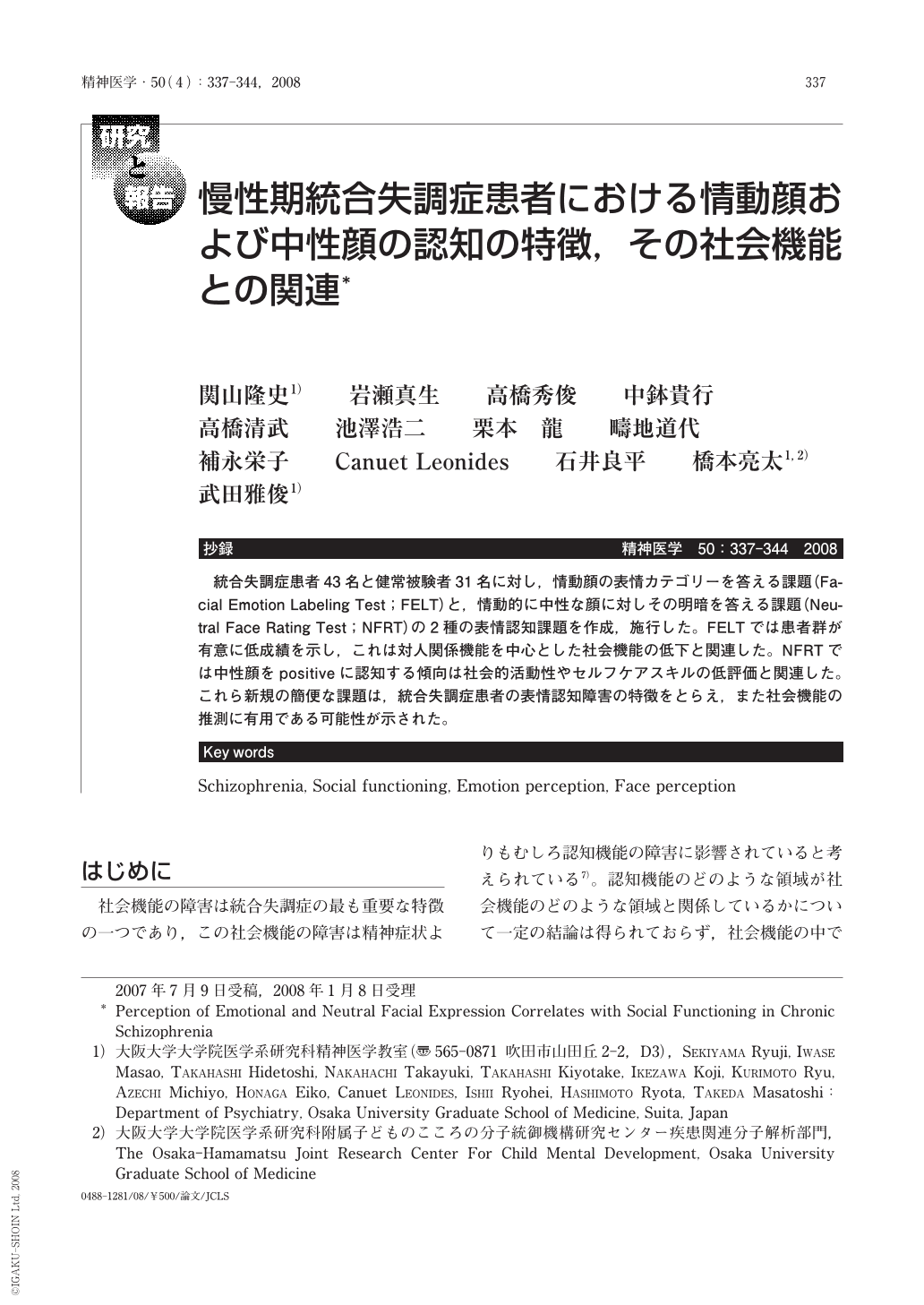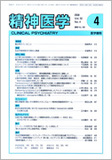Japanese
English
- 有料閲覧
- Abstract 文献概要
- 1ページ目 Look Inside
- 参考文献 Reference
抄録
統合失調症患者43名と健常被験者31名に対し,情動顔の表情カテゴリーを答える課題(Facial Emotion Labeling Test;FELT)と,情動的に中性な顔に対しその明暗を答える課題(Neutral Face Rating Test;NFRT)の2種の表情認知課題を作成,施行した。FELTでは患者群が有意に低成績を示し,これは対人関係機能を中心とした社会機能の低下と関連した。NFRTでは中性顔をpositiveに認知する傾向は社会的活動性やセルフケアスキルの低評価と関連した。これら新規の簡便な課題は,統合失調症患者の表情認知障害の特徴をとらえ,また社会機能の推測に有用である可能性が示された。
It has been suggested that the recognition of facial expression is closely related to social functioning and clinical symptoms in schizophrenia, even though few studies have addressed this phenomenon. However, the relationship between patients' impaired recognition of facial expression and their clinical features is yet to be clarified. In order to evaluate the recognition of emotional and neutral facial expression as well as its relationship with social functioning in schizophrenia, forty-three patients with chronic schizophrenia and thirty-one healthy volunteers were recruited for this study. Two novel facial perception tests:the Facial Emotion Labeling Test (FELT) and the Neutral Face Rating Test (NFRT) were used. For the application of these tests the Japanese and Caucasian Facial Expression of Emotion and Neutral Faces picture set was employed. In the schizophrenia group, the Rehabilitation Evaluation Hall and Baker scale was assessed as a social functioning indicator. In addition, the Positive and Negative Syndrome Scale was used to evaluate psychiatric symptoms. The accuracy rate of FELT was significantly lower in schizophrenic patients than in healthy controls. Furthermore, the low accuracy rate was associated with low social activity, speech skills, speech disturbance, overall social functioning and the presence of severe cognitive symptoms. In NFRT, the schizophrenic patients showed a tendency to recognize neutral faces as positive facial expression. This positive error bias in the recognition of neutral face was associated with low levels of social activity, self-care skills, overall social functioning and severe positive symptoms. Our findings suggest that FELT and NFRT may be applied as a supplementary tool to evaluate social functioning in patients with chronic schizophrenia.

Copyright © 2008, Igaku-Shoin Ltd. All rights reserved.


